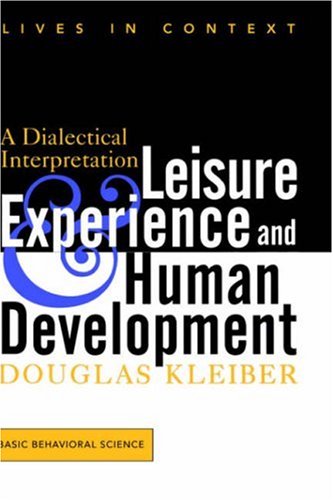Lives in Context
1 total work
This text explores the relevance of leisure experience (play, sport, happiness, quality of life, and well-being) to optimum human development, using a unique lifespan development approach. }Douglas Kleiber argues that the value of leisure for development lies in the particular experiences derived from those leisure activities. Experiences that fulfill a need for autonomy, competence, self-expression, and relatedness; that provide a dialectical response to ones prevailing patterns of living; or that address age-related tasks are generative of development and self-actualization. Kleiber reviews the predictable changes in leisure behavior over the life span, noting that activities stimulating developmental change are adopted less often and less effectively than they might be. He then considers the role that leisure experience can play in addressing the problems of socialization, identity formation, and adjustment to life circumstances, concluding with a discussion of optimizing leisure later in life. }
